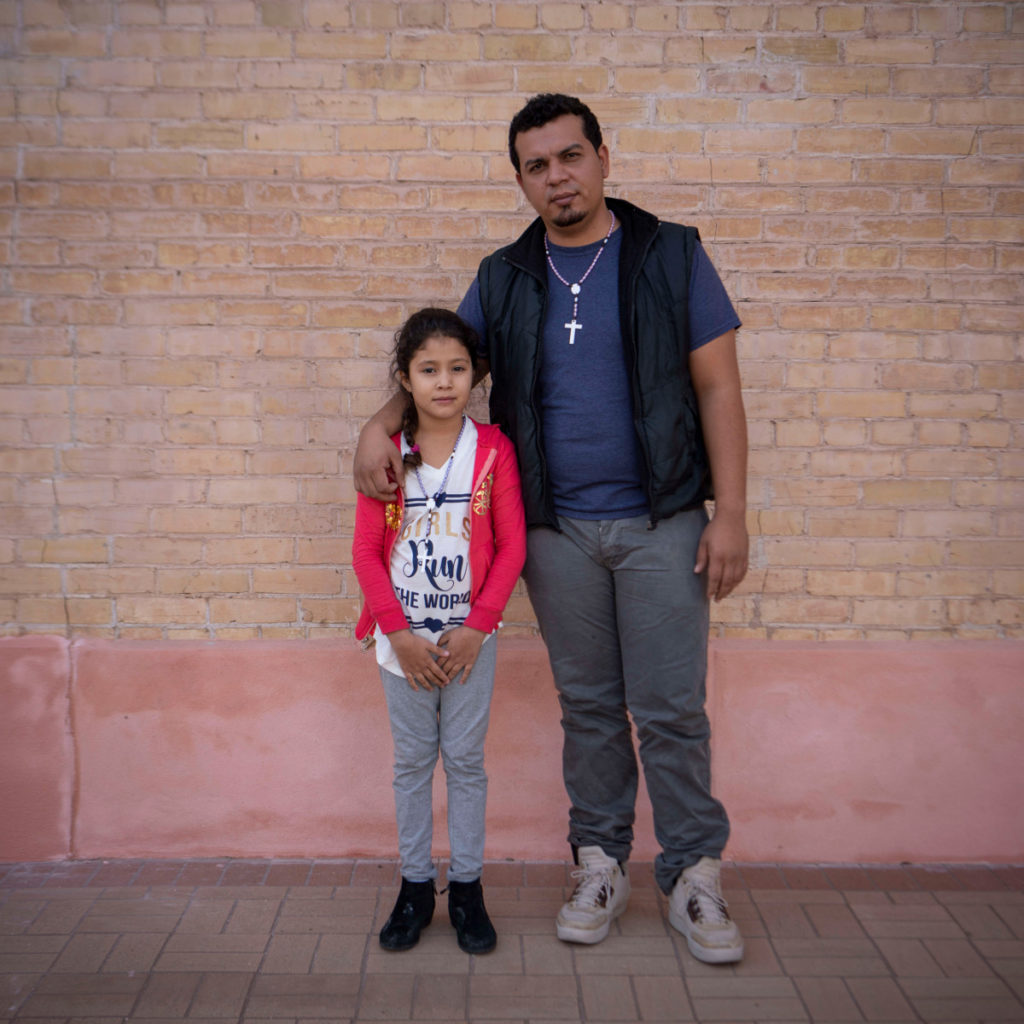Eduardo Barela 25 from Catacama in the Olancho Department of Honduras came to the United States traveling through Mexico with his six-year-old daughter Dana Jose over the course of 27 days. In his case, he traveled without the help of a human trafficker, which they call guides. Upon turning themselves into the Border Patrol, they spent five days in detention.
Like others from his home country, he left his home because of the incredible insecurity which many Hondurenos fear will certainly affect them. “You are always worried because at any time it could happen,” he said.
Eduardo had gone to college for two years in Honduras, but because of the rising costs of living, and inability to put food on the table, he had to stop and start working full time. “You can eat or you can study,” he said, “I’d rather eat.”
Working day by day, he said he only made about five dollars per day. “With five dollars you can’t support your family,” he explained. “Not even for one person, I’ll admit.” With two children to provide for, the cost of medicine, clothes and food would surpass his typical earnings. Most Hondurans earning such wages can barely afford food.
“No one would leave the place where they were born if things are good,” he said with a tear in his eye. “If you can’t make it, then the only solution is to leave, it’s the only solution you have. “No one would want to leave their family, or leave their friends.”
Eduardo would meet his cousin in Indiana, where he hopes to stay during his immigration process
Eduardo Barela, 25, de Catacama Departamento de Olancho en Honduras, llegaron a los Estado Unidos viajando por México con su hija Dana José, de seis años, en un transcurso de 27 días. En su caso, el viajo sin ayuda de un traficante de humanos, que ellos llaman guías. Al entrar por ellos mismos a la patrulla fronteriza, estuvieron en detención por cinco días.
Como otros de su país, él dejó su hogar por la increíble inseguridad que muchos hondureños temen, por supuesto que les va afectar. “Siempre estás preocupado porque en cualquier momento puede pasar,” dijo él.
Eduardo fue al colegio en honduras por dos años, pero a causa del aumento de costo para vivir, y la inhabilidad de poner comida en la mesa, tuvo que dejar y trabajar tiempo completo. “Puedes comer o puedes estudiar,” dijo él, “Prefiero comer.”
Trabajando día a día, él dice que solamente ganaba cinco dólares al día. “Con cinco dólares no puedes mantener a tu familia,” el explico. “Ni para una persona, lo admito.” Con dos hijos que mantener, el costo de medicina, ropa y comida, sobrepasa su ingreso típico. La mayoría de los hondureños con esos ingresos muy apenas pueden comprar comida.
“Nadie dejaría el lugar donde nacieron, si las cosas están bien,” él dijo con una lágrima en su ojo. “Si no la haces, la única solución es irse, es la única solución que tienes. Nadie quisiera dejar a su familia, o sus amigos.”
Eduardo se estará reuniendo con su primo en Indiana, donde espera quedarse durante su proceso migratorio
The Faces of Immigration Project is a 40 Day photo journal series used to highlight the stories of all Immigrants. The project is meant to shed light on some of the many reasons people have for immigrating to the U.S. Statements and stories have been edited for content, clarity, and brevity and may not reflect the entirety of an Immigrant’s reasons for immigrating to the United States.
By Paul Ratje

